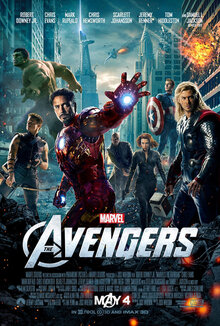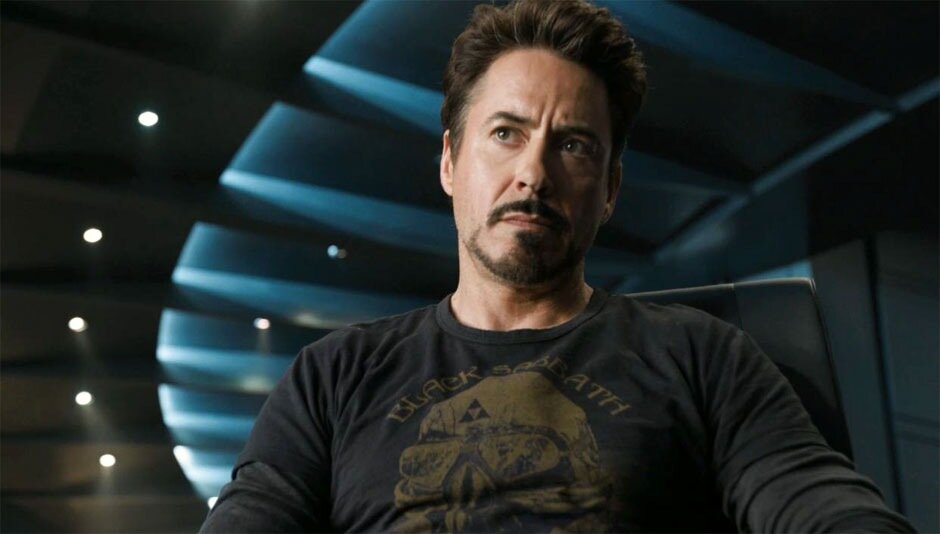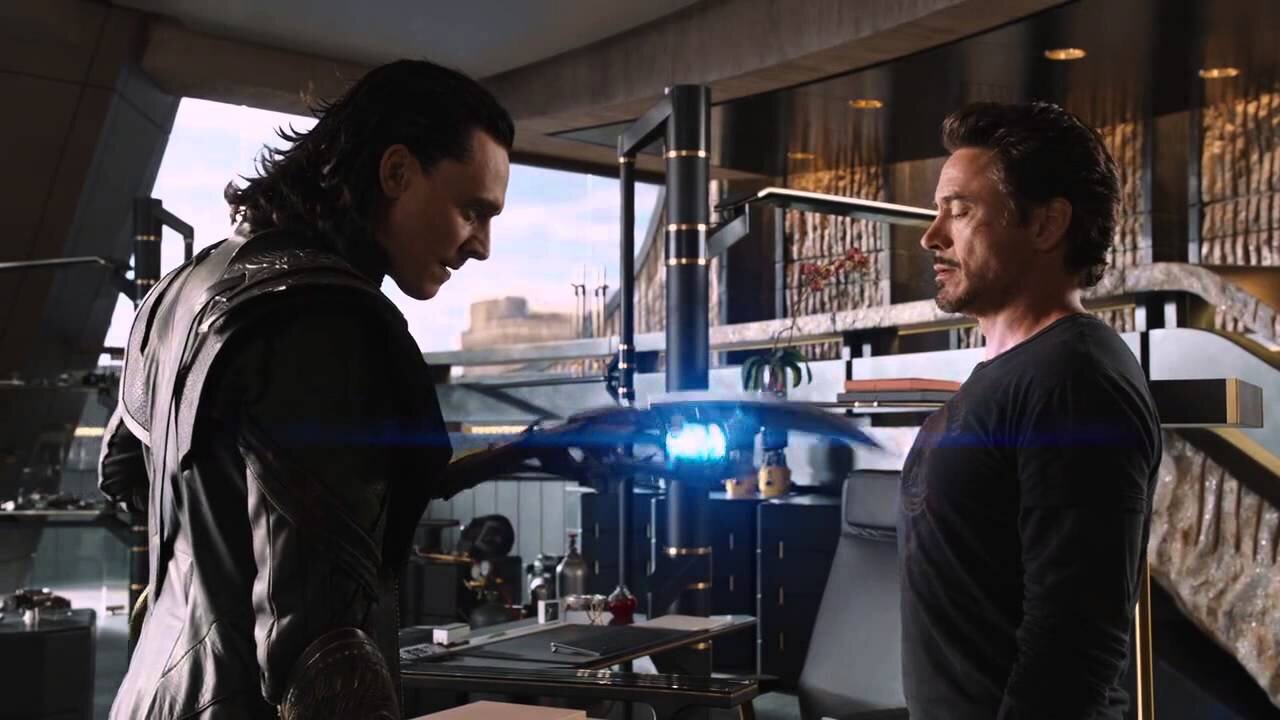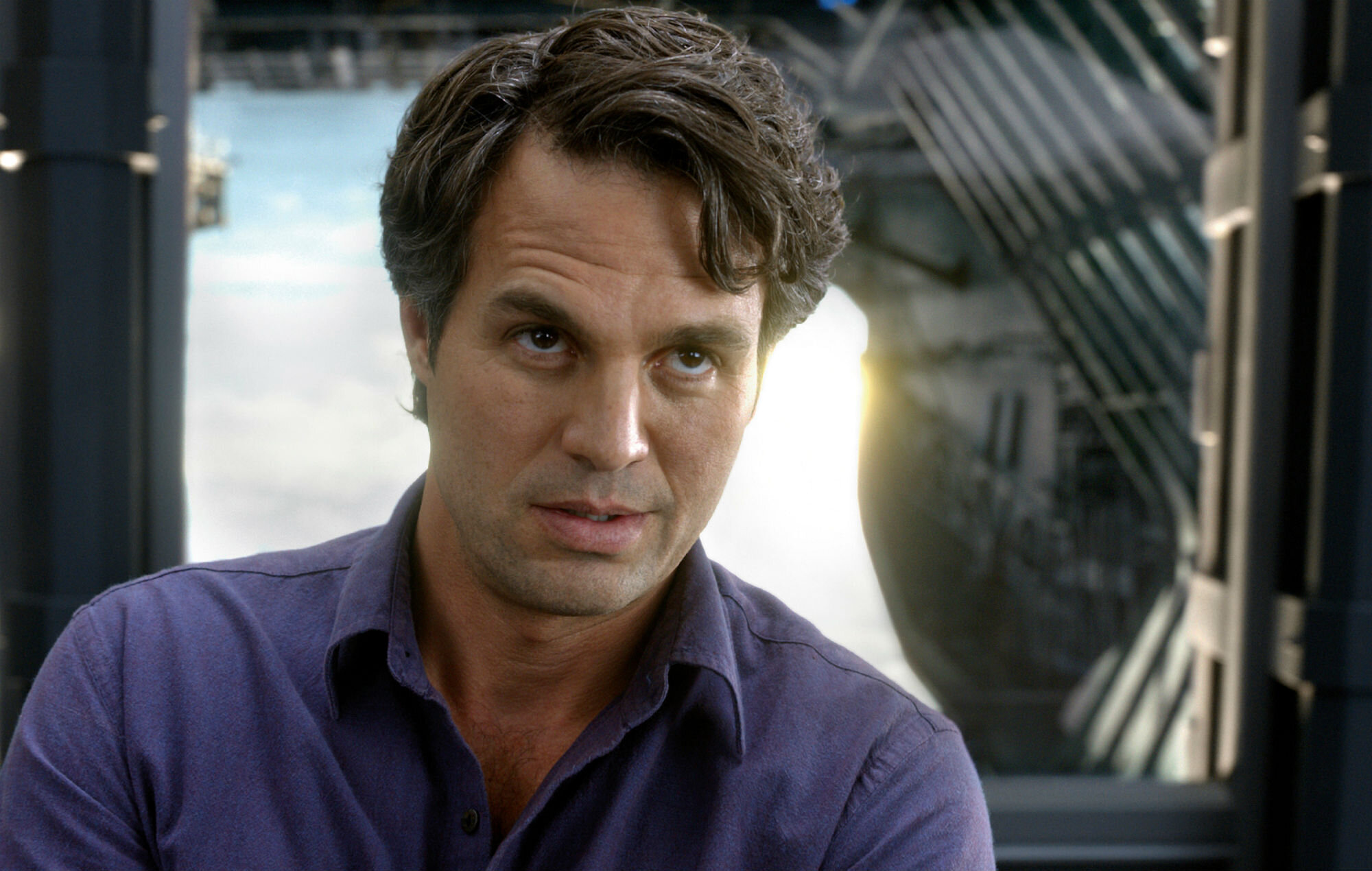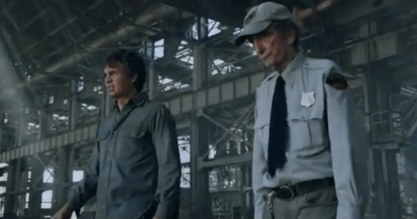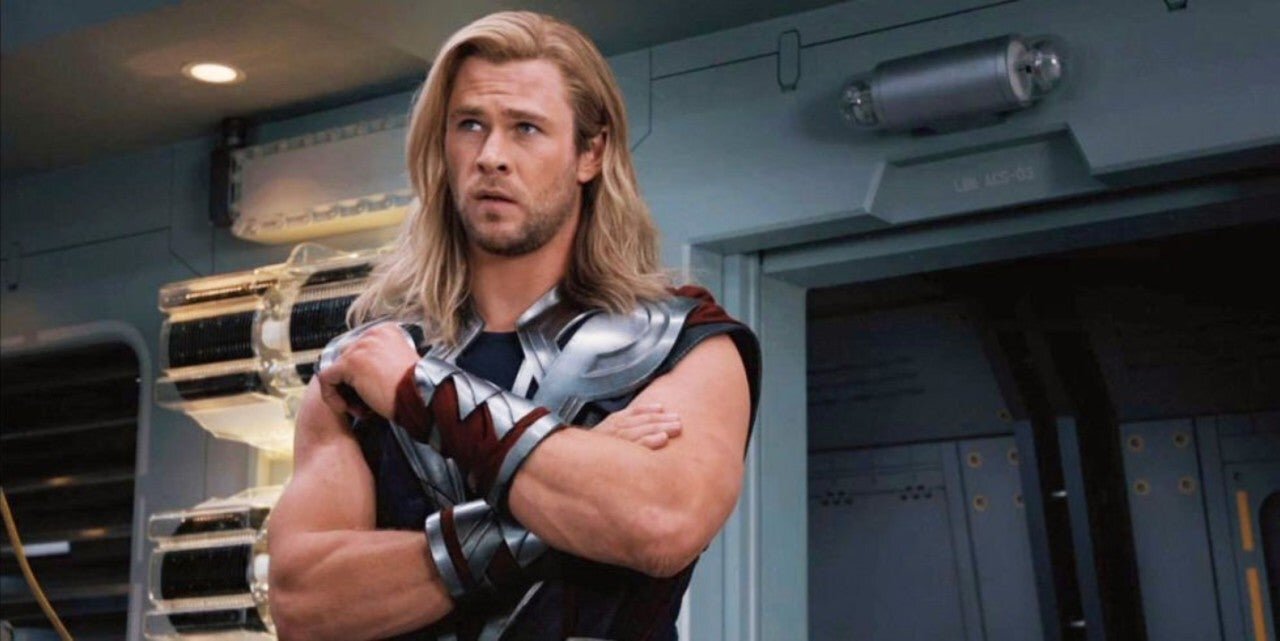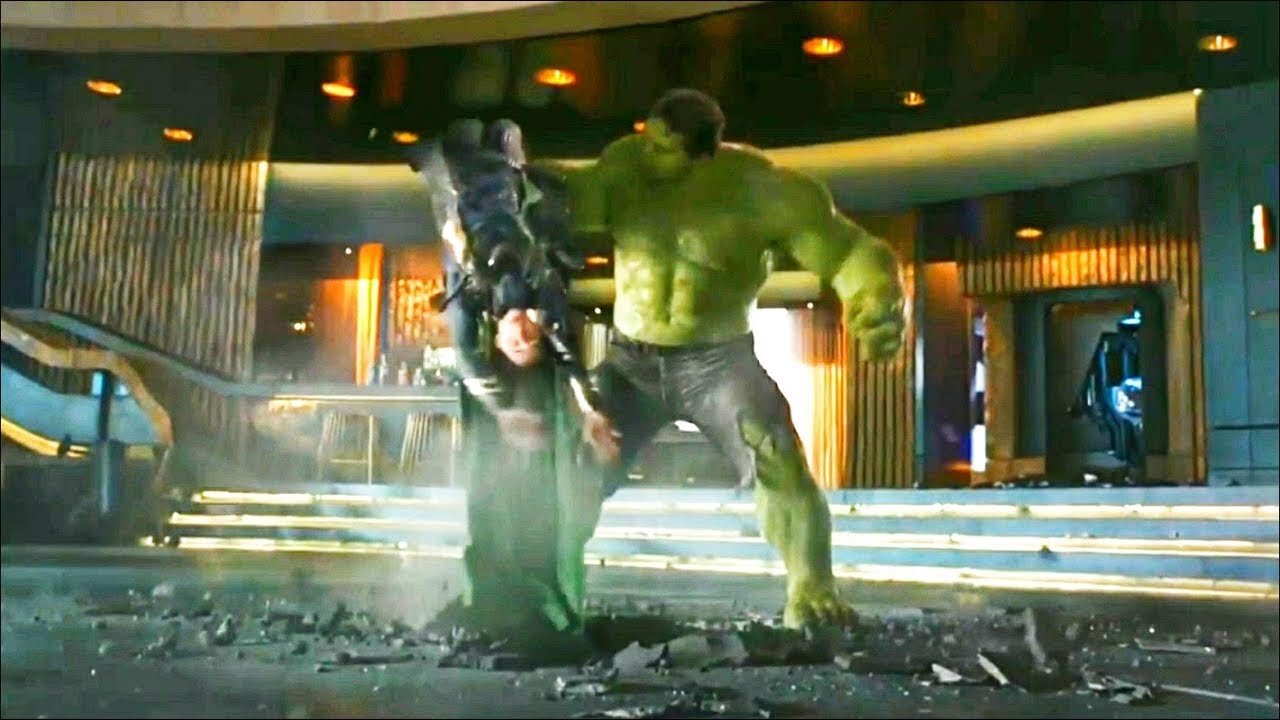23 Marvelous Movies: The Avengers
The Avengers was by no means the first film to cross different characters from different series together in one film. Freddy vs Jason, Alien vs Predator, Zatoichi and the One-Armed Soldier, King Kong vs Godzilla, and Frankenstein Meets the Wolfman, just to name a few. But it was the first of this kind of movie to be a serious stepping stone for its characters’ arcs. It didn’t just bring these heroes together because it would be fun to see. It brought them together because that’s why they brought them to the screen in the first place.
As stated in the last few reviews, audiences had no problem accepting that these films were taking place in the same universe. But they were still skeptical about how these heroes could work together in the same movie. The last franchise that had a massive impact on the blockbuster scene was Harry Potter in the 2000s, and that was because it focused on a consistent cast of characters that grew throughout all eight films, as opposed to prior franchises that featured largely self-contained stories. The next step in Hollywood storytelling after Deathly Hallows Part 2 in 2011 was a saga that had a cast of characters that mostly had their own debut movie before they began working together.
The Avengers, a movie that has six central characters with about equal screentime, succeeds like every other superhero movie succeeds-with a script that puts character growth first and foremost, has every fight scene unfold naturally, contains sharp and organic dialogue, and rewards audiences for their patience with incredible and coherent spectacle. Contrary to what people thought when the film did as well as it did, there was no secret ingredient that made it work. It simply gave audiences everything they were expecting from a team-up movie while adding substance, character depth, and nuanced storytelling.
So, it only made sense that they brought on board a director who had a terrific track-record of providing all that: Joss Whedon. While any of the previous directors of the series (Favreau, Leterrier, Branagh, and Johnston) would likely have done a good job with the material, Whedon’s trademark wit, attention to character, and sharp dialogue made him the alchemist who made this daunting experiment work.
But what truly makes it apparent that Whedon was the right choice to helm this crossover is how much he is willing to milk every interaction between the characters of the depth, insight, and enjoyment that can derive from them, be it just a discussion or an action scene. The only way I can explain how is to go over each of the main players and how they grow throughout the movie, starting with its antagonist.
There was an additional bold decision that Marvel made when they set forth with this series: not only did they take the protagonists of all five previous films and bring them together, but they also took the antagonist of one of them and made him the enemy of this crossover, as opposed to giving it its own bad guy like another studio would have done. To add to this connectivity, he even uses the McGuffin from another previous film: the Tesseract from Captain America to bring an alien army to take over Earth. And it’s here that we see what exactly that cube does: it can teleport people to different places and open a gate between long distances. Now we know what Red Skull was using it for when he shot at people with its power.
Loki is the only villain from the previous movies that would make sense of the one in this film. He has something that the others did not: the power to manipulate, to bring doubt to our heroes, and intimidate them with his own words. He understands the insecurities and curiosities that all his foes have underneath their rough exteriors. It sometimes becomes easy to forget that he is only a tool for an even bigger adversary when I hear him talking with Nick Fury about misguided his plan to bring “lost creatures” together to fight him is, and later with Natasha about all the people she hurt in the past when she was merely a weapon and how childish it is to think she can redeem Barton after Loki took over his mind.
As was predicted from his two standalone outings, Tony would be the one who experiences the biggest change of the six. He has gone from self-obsessed jerk to loner struggling to make friends to relying on others to finally being a team player with members that are staggeringly different from him.
Tony, as we see at the beginning of the film flying to his tower in New York City with his name literally on top of it and giving Pepper Potts only 12 percent of the credit for it, still has an ego problem. When he joins the Avengers, we already see him try to take charge of the crew and tease Banner by poking him with an electric rod. At first glance, it seems like he won’t be able to melt into this team well at all. That is until Agent Phil Coulson dies.
I also love that he finds out where Loki is planning to open his portal to bring his chitaurian army with the tesseract (Stark Tower) by realizing he has an ego as large as his.
What makes his later talk with Loki meaningful is that he takes his words and ideas from Phil, the agent that he found so annoying at the beginning of the movie. He even explains the meaning of the name of the team, “because even if we can’t save the world, you can be damn well sure we’ll avenge it.”
Sidenote, Loki tries to mind-control Tony by using his staff on his chest, but he can’t because of Tony’s arc-reactor protecting him. The only one whose heart can’t be corrupted by Loki is the biggest narcissist in possibly the entire world.
But the biggest step in his arc by far, Tony finds himself in the middle of space by flying the missile launched at by the World Security Council through the portal that Loki opened and to the main Chitauri base. He finds himself in awe and fear of how small he truly is in this universe and his ego has suddenly had a massive bite taken out of it, meaning that his humbling can only improve as the series goes on.
Now let’s examine the one avenger that Iron Man is least like: Captain America.
If Steve Rogers was essentially a perfect protagonist in his solo outing, his flaws come forth when he is in a time that is vastly different from the one he grew up in. Even though we start off seeing his usual sense of morality when he stands up to Loki in Germany and compares his wanting to be the king of the world to Hitler and when he breaks up the fight between Iron Man and Thor over ownership of Loki, but he later becomes untrusting towards the new technology that has created the new and scary world around him. He also becomes wary of the other people he’s forced to work with who are just as powerful as he is; whether their powers come from technology, training, gamma radiation, or from birth. He may have had experience working as a team from World War II, but not with members this equal to him.
Later, however, he and Tony work together to repair a turbine during an attack by Loki’s henchmen. This is where Steve learns that there is value in Tony’s Iron Man suit and the gifts of the other members. This is why he takes on the role of a leader in the group, understanding the skills that his teammates have, and using them to stop Loki.
Steve is also the one who discovers that S.H.I.E.L.D plans to use the Tesseract to create weapons out of fear for enemies that came from where Thor came. This causes him to realize that governments still can’t be trusted, a fact that will be expanded upon in his next movie.
Unlike what Steve said about Tony, that he’s unwilling to sacrifice himself like the men that Steve has fought with, Tony carries an entire missile and throws himself in the deepest recesses of space to save everyone he loves and everyone he doesn’t even know. And unlike what Tony said about Steve, that everything special about him came with the serum, Steve shows incredible leadership skills, something that he couldn’t have gotten from the experiment done on him. While we know after the release of Captain America: Civil War that the strife between them is far from over at this point, the conflict established between the two of them is resolved brilliantly and fleshes the two out even further.
Mark Ruffalo makes his debut as Bruce Banner in this film, replacing Edward Norton for the remainder of The Infinity Saga. I said in my review of The Incredible Hulk that Norton brought a layer of intensity to the character, but Ruffalo makes Banner feel more human and mild-mannered. We didn’t see too much of Norton’s softer side in his solo outing, which meant there wasn’t as big a distinction between Banner and the Hulk as there should be.
While this replacement does make it harder to believe that The Incredible Hulk focused on the same character as the one shown in this film, it is a natural step forward for him as well. Banner, when he’s being approached by Natasha in Calcutta to join the Avengers when he and Tony are trying to find the Tesseract together, and even when he is caught in between a heated scuffle among the heroes. In The Incredible Hulk, he realized that he couldn’t get rid of “the big guy” and discovered that he just had to control himself so he could use his alter-ego as a weapon when he wants to. Now he just needs the desire to use that alter-ego when the time calls for it.
Throughout his entire time on S.H.I.E.L.D’s hellicarrier, Banner is manipulated by Loki’s scepter to build-up the anger that lies dormant in him, fueled by the anger at S.H.I.E.L.D for planning to kill the Hulk when he knows that they can’t. He even becomes so heated during the argument among the rest of the team that he ends up picking up the scepter without even knowing it, though he has at least enough self-control to not use it on anyone else.
A pivotal scene is after he falls from the sky after becoming the Hulk when the hellicarrier is attacked by Loki’s henchmen. He lands in a warehouse and comes across a security guard who informs him that he was awake while he was falling, implying that he was aiming for a place where there would be less damage caused by his impact, meaning that the Hulk is not just a monster blinded by rage and Banner can still have a mind of his own.
When he arrives in New York City during the attack by Loki’s Chittari armada, Bruce has both a reason to willingly become the Hulk, and it’s here we have the reason why he’s able to transform freely. Though this time, he brings his mind with him, willingly trying to save as many people as he can during the fighting, including Tony when he comes flying out of the portal.
Thor obviously has the most personal relationship with Loki, his half-brother. Though he has gained an appreciation for humans after his meeting, Jane Foster, he still sees himself as a god first and believes he can win his brother over. During Tony and Steve’s squabble, Thor just chuckles about how “petty” humans are.
But when he watches Loki kill Agent Phil Coulson, Thor finally gets a grasp on how truly evil his brother is. He tries one more time to win him over while the two fight on top of Stark Tower and fails, which is where he realizes that teaming up with the others is the only way to stop all the destruction. And when the day is saved, he takes his brother back to Asgard to answer for his crimes, along with the tesseract so he can put it in Odin’s treasure room where it belongs, proving to Fury that he can be trusted.
After making a big splash with her debut in Iron Man 2, Natasha Romanoff, aka Black Widow, returns in this outing and here we finally get a glimpse at her backstory and what makes her unique among the Avengers. When we first see her in the film, she’s tied up and being interrogated by Russians, meaning she hasn’t completely cut all ties with the country she left and she has a very specific history that is still following her. Also, during her talk with Loki, it’s revealed that she was bred to be a killer before she was taken in by S.H.I.E.L.D. This finally shows that she is more than just eye-candy like Iron Man 2 presented her as, effective and sensational eye-candy for sure but eye-candy nonetheless.
Her redemption begins when she frees Barton from Loki’s mind-control, ironically by hitting him in the head. We also see a nurturing side of her as she tends to his wounds and tries to relieve him of the guilt he feels for everyone he’s harmed.
Speaking of which, It’s in this film where we meet Hawkeye, played by Jeremy Renner, who had a cameo in Thor as one of S.H.I.E.L.D’s snipers who prefers using a bow and arrow. Unfortunately, we don’t see him being a hero for long before he becomes one of Loki’s slaves along with Dr. Selvig, also from Thor.
When Natasha frees him from his mental prison however, we see a man overwhelmed by guilt over everyone he’s harmed. His arc is naturally the simplest of the main six: going from Loki’s mind-puppet to being a crucial part in stopping him in New York City. With all that said, he does have an everyday man quality to him that makes him stand out in the team, an aspect that would be explored later on in the next Avengers movie.
But now, let’s get to one of the real unsung heroes of the cast.
Agent Phil Coulson, played by Clark Gregg, is the real heart of The Avengers, the surrogate for the audience gushing over these characters we’ve loved these past few movies and the idea of them banding together to fight the battles no one else could. Plus, he’s the only S.H.I.E.L.D agent to stand up to Loki and even manages to shoot him, even if he ends up getting killed by the sneaky god of mischief. Even if Nick Fury lies by saying he found Coulson’s bloodstained vintage Captain America trading cards in his jacket, it’s just a bit of extra manipulation needed to convince the embattled heroes that they could work together.
Nick Fury can also be described as an avatar for the audience, in how he tries everything he can to convince the World Security Council (who can be a stand-in for all the critics who were skeptical that the film would succeed) that the Avengers could actually band together and save the world. While he does have misguided intentions, planning to use the Tesseract to create weapons, he is willing to put more in more trust in the team he’s created and even tries to stop the council from sending the missile to Manhattan. When the battle has been fought and the team saves the day, Fury is assured that he made the right selection in players, and knows that they would always be ready to save the day again.
And all these character dynamics culminate in one of the greatest final battles in cinema history,
The Avengers understands that although we came to see these characters clash and bicker with each other, what we came to see was them kicking ass together. The final battle sequence is the perfect reward to generations of Marvel fans clambering to see such a union; the ultimate victory celebration of proofing all the naysayers wrong.
There is another aspect that The Avengers introduced to the MCU: the theme by Alan Silvestri which would later be the definitive anthem to tie every hero in the series together.
When it premiered in May 2012, The Avengers came, The Avengers saw, and The Avengers conquered, instantly earning its place in the halls of Hollywood blockbuster history among Jaws, Star Wars, E.T., Terminator 2, Jurassic Park, Titanic, Harry Potter, and Avatar. Just like those pinnacles of mainstream cinema, it received that reputation by delivering audiences exactly what they didn’t know they wanted.
Any skepticism that a group of different characters from different franchises could mingle together in a coherent, entertaining and thoughtful movie disappeared. Joss Whedon became even more of a god of geek culture than he was the week before this movie’s release date, and Disney was reassured that they made the right choice in purchasing Marvel Entertainment in 2009 (this also happened to be the first Marvel movie that Disney distributed after Paramount released most of them up until this point).
It would become the official standard for every Marvel movie in the franchise. Although future installments would take the series in fresher and more daring directions, none of them would have been made if this didn’t succeed in its mission as well as it did. And this precisely why it’s my favorite entry in the entire Infinity Saga.
And to wrap up the perfect entry in the series, the one that would define it for the rest of its duration, Marvel teased us of a far bigger threat than Loki ever posed. One who would be the one who would tie the entire franchise together.

